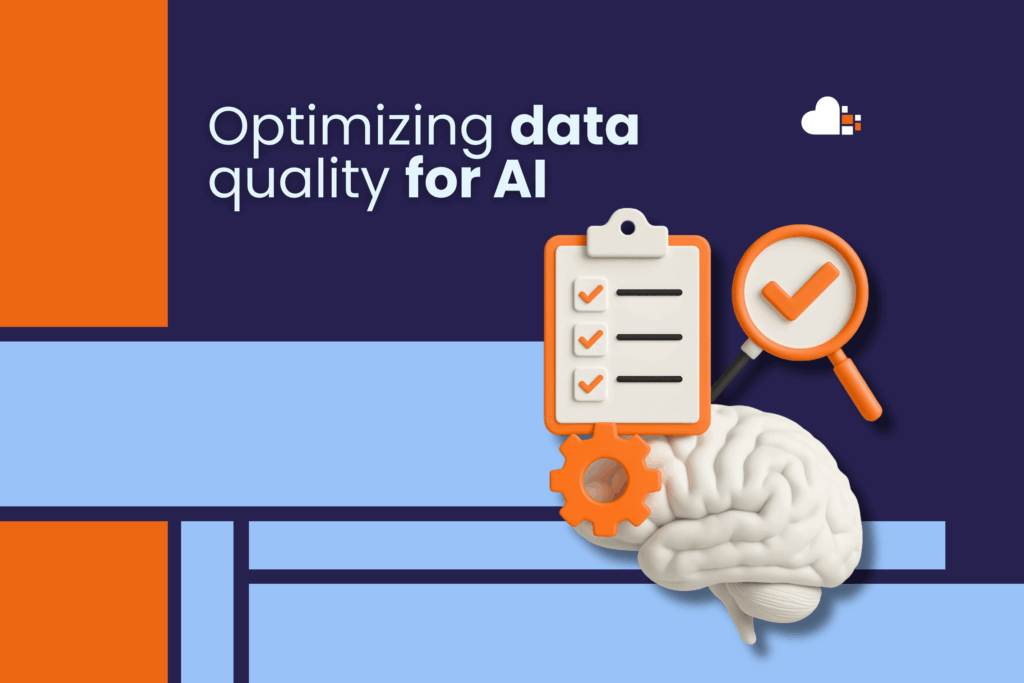Ensuring the accuracy of data pipelines is an important aspect for any data-driven organization. As more and more organizations increasingly rely on artificial intelligence for decision-making and automation, the accuracy and integrity of their data become even more critical. Knowing how much time to allocate for testing and validating data transformations can make the difference between success and costly mistakes. Drawing from our experience, we explore the areas for data validation, the nuances of different data types, and best practices for time allocation.
Key Stages for Data Validation
1. Extraction and Loading (EL)
In the EL phase, data is extracted from various sources and loaded into a data warehouse or data lake. At our company, this process is managed by our data engineers who ensure that all records flow through the system correctly. They focus on the flow and completeness of the data, not necessarily the quality. Detailed validation is something we often reserve for the next phase.
2. Data Modeling
Data modeling is where the transformation (T) occurs, often using tools like DBT. This stage is crucial for shaping the data into structures that meet business needs. Our analytics engineers take on this task, paying detailed attention to the quality of the data to ensure that the models are correctly implemented and that the data they produce is reliable and consistent. Testing in this phase is intensive, reflecting the critical nature of accurate data modeling.
3. Activation
The activation phase encompasses reporting/dashboarding, advanced analysis, and providing inputs to activation systems such as email service providers or automated triggers. Validation here ensures that the data used in reports and analyses is accurate and actionable, making well-informed choices and keeping things running efficiently.
Data Quality Frameworks and Monitoring
We believe a robust data quality framework is essential for maintaining high standards of data integrity. Implementing automated monitoring systems helps us track data quality metrics, identifying and addressing issues promptly. Our frameworks typically include:
- Data Quality Rules: Specific criteria that data must meet to be considered valid.
- Automated Testing: Tools like DBT and Looker come with built-in validation options that we configure properly, allowing for the definition of data quality rules, automated testing, and continuous monitoring.
- Monitoring Tools: Automated systems that continuously check data quality and alert when issues arise.
- Regular Audits: Periodic reviews to ensure ongoing data integrity and compliance with standards.
We tailor our approach to data validation and testing based on the project’s scale and complexity. Small enterprises might focus on manual testing methods due to resource constraints, while large enterprises can leverage automated solutions and dedicate entire teams to data quality. Regardless of size, adopting a scalable data quality framework that can grow with your organization is important.
Web Analytics vs. Transactional Data Sources
From our experience, testing methodologies differ significantly between web analytics data and data originating from operational systems such as your CRM, sales, and ERP. Web analytics data is often lower in quality, with missing values and duplications. Creative deduplication techniques are necessary to handle situations where duplicates might have different keys. The transactional data sources, in contrast, generally require a structured validation approach to ensure transactional data integrity and reliability.
The Maturity Curve in Data Testing
We’ve observed that more mature data teams tend to invest heavily in data testing. As companies advance, they develop quicker development cycles and a broader perspective on the implications of data issues. This maturity leads to investments in technological solutions and allocating more resources to testing and validation, recognizing its role in maintaining data quality and operational efficiency. Experienced analysts, in particular, bring significant value, as they can quickly identify the root cause of mismatches and understand the broader implications of errors.
Rule of Thumb for Time Allocation
Based on our experience, a general rule of thumb for time allocation across different stages of the data pipeline might look like this:
- Extraction and Loading (EL): At this stage, allocate approximately 10 to 20% of its time to testing and validation.
- Data Modeling: At this stage, we dedicate about 30 to 50% of its time to testing and validation, given its critical role in defining the data structure.
- Activation: To ensure that the outputs are accurate and actionable, we generally take 20 to 30% of this stage time for testing and validation.
It’s important to note that these percentages can vary based on specific project needs and the complexity of data sources involved.
The Future of Data Testing and Validation
With the increasing volume and complexity of data, we believe the importance of testing and validation will only grow. Future trends suggest a move towards more automated, continuous testing methods integrated into data operations. This evolution aims to enhance both the rigor and efficiency of data validation processes, ensuring data accuracy and compliance. Moreover, high data quality is vital for the success of AI strategies.
Conclusion
For organizations and departments delivering premium data services to internal or external customers, adopting a structured, stage-specific testing and validation framework is essential. This approach not only ensures data integrity and reliability but also enhances the overall value delivered. By prioritizing thorough testing and validation, supported by robust data quality frameworks and monitoring, you can safeguard your data assets, drive better decision-making, and maintain your competitive edge in an increasingly AI-fueled world.
